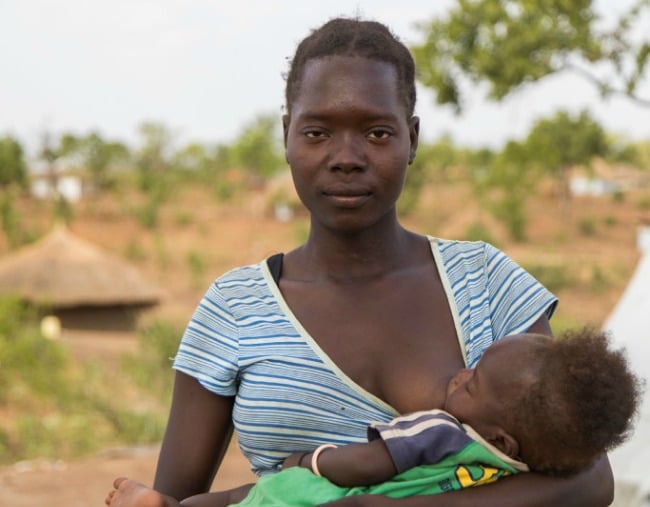We hear and say it all the time – breastfeeding gives your child the best start in life.
We also hear the stories of women who can’t breastfeed their babies, because of social pressures, pain, time, or medical problems. We hear about the guilt experienced by mothers who can’t. We hear about the health effects on babies who weren’t. This is a complex situation requiring compassion — and action!
I was confronted this week by a stunning statistic from a recent World Vision report – A million have fled from South Sudan to Uganda. Another million have gone to Sudan, Kenya and Ethiopia. 81 per cent of mothers who have fled conflict and chaos in South Sudan to seek refuge in Uganda exclusively breastfeed their children for the first six months of their lives.


Top Comments
To clarify my earlier post, I agree that life in refugee camps is horrific, almost as bad the situations that created the needs for the camps. But the title of the post implies what refugees really need is formula. And at the same time people in the developed world need to realize that formula is not as value neutral as we believe. Natural disasters in countries with higher rates of formula use (as in "developed" or Western nations) are more likely to die than babies in areas with high breastfeeding rates. Yes -- let's work on the structural causes of war, refugees, climate disasters and more. But please, can't we do it without implying life isn't good if we can't have the option of also giving a sub-optimal feeding choice?
Formula fed infants in emergency situations (including refugee camps) are 6x more likely to die than their breastfed peers in the same place at 2 months of age. The access to clean water, ability to sterilizensure supplies, and simple consistent availability of formula is not the same in the developing world as it is in Western nations. Your concept of freedom of choice would result in the deaths of many more infants. It is estimated that there are 800,000 infant/young child deaths globally each year that could be prevented by exclusive breastfeeding. (Data sources for all my info found via WHO, UNICEF and UNHCR). The conditions that make breastfeeding a matter of preference in your world simply do not exist in the communities served by WV.